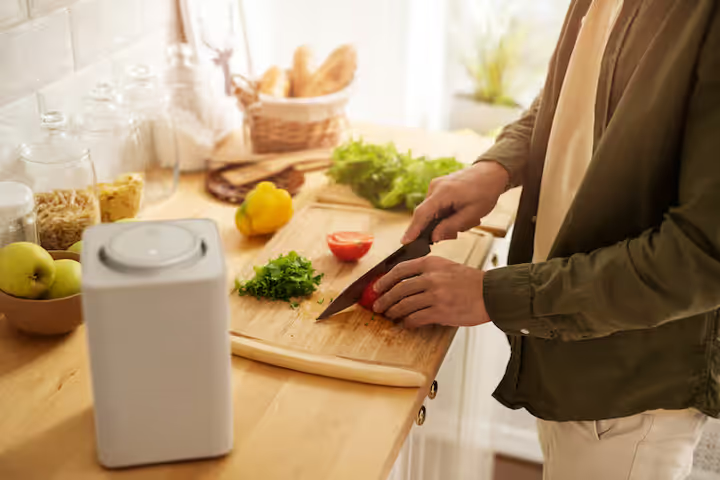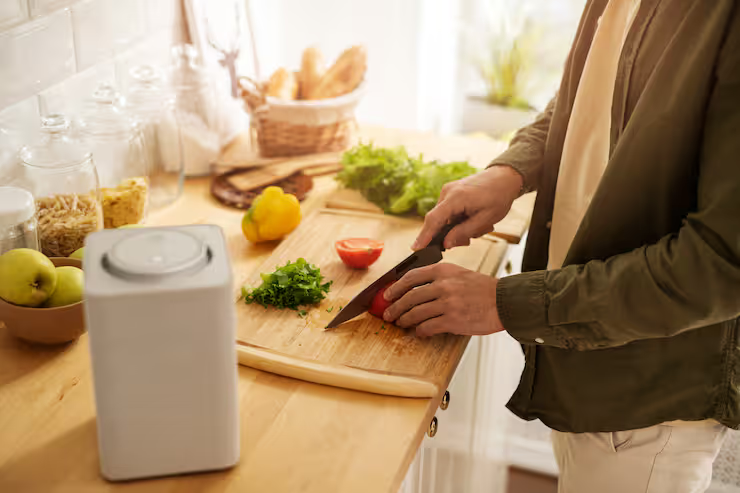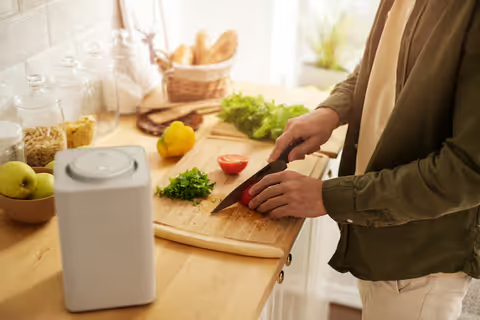
Smart Kitchen Gadgets Explore Tips, Insights, and Practical Knowledge
The concept of “smart kitchen gadgets” refers to kitchen appliances and tools enhanced with modern technology such as sensors, artificial intelligence (AI), connectivity (Wi‑Fi/Bluetooth), apps, automation, and data tracking to make cooking, food storage, cleaning, and meal management more efficient, precise, and user-friendly. These gadgets go beyond traditional kitchenware: instead of just boiling water or chopping vegetables, they can adjust cooking parameters automatically, track ingredients, suggest recipes, monitor food freshness, or even integrate multiple cooking tasks in one device.
As lifestyles become busier and households aim for convenience and healthier meals, this shift from manual cooking tools to “smart” appliances is gaining momentum. The idea isn’t new, but recent advances in AI, IoT (Internet of Things), and app ecosystems have made smart kitchens more accessible and practical for everyday homes.

Why Smart Kitchen Gadgets Matter Today
• Convenience and Time‑Saving
-
For many families and working professionals, meal preparation can be time-consuming. Smart appliances such as app‑controlled cookers, automatic stirrers, or multi‑function cookers — allow users to set up cooking and move away, returning to a cooked or almost‑done meal.
-
Gadgets with preset cooking programs reduce guesswork: no more monitoring simmering pots or risking overcooking.
• Precision and Consistency
-
Smart ovens, induction cooktops, and multi-cookers can automatically adjust temperature and cooking times based on the dish, ensuring even cooking and consistent results.
-
For dishes where slight changes in timing or heat can affect texture, such precision helps maintain quality across cooking sessions.
• Health and Nutrition Control
-
Smart kitchen scales and food‑tracking devices help monitor ingredients, portion sizes, and nutritional information useful for those managing diet or health conditions.
-
AI-powered appliances such as air-fryers or low-oil cooking modes support healthier cooking by reducing oil usage while still delivering desirable taste and texture.
• Energy Efficiency and Waste Reduction
-
Smart appliances optimize energy use for example, by auto-switching off when cooking is done or adjusting heat intelligently to avoid waste.
-
Smart refrigerators with inventory tracking and expiry alerts help reduce food waste by reminding users when items are near expiry or recommending recipes based on what’s left.
• Adaptable to Modern Lifestyles
-
With growing urbanization, smaller kitchens, and busy schedules, smart gadgets let households regardless of size or cooking expertise manage meals efficiently.
-
Integration with mobile apps, voice assistants, and smart‑home platforms aligns with the increasing digital comfort of users.
In short: smart kitchen gadgets matter because they adapt cooking to modern life making meals easier, healthier, more reliable, and energy-conscious.
Recent Updates & Trends (2025–2026)
-
AI-Enhanced Kitchens: Kitchens are increasingly embracing AI-powered appliances that automate cooking tasks, adjust parameters intelligently, and suggest recipes.
-
Rise of Integrated Kitchen Ecosystems: More homes are using connected kitchen systems where refrigerator, oven, cooktop, dishwasher, and more communicate through a unified app or platform enabling holistic control over meal prep, cooking, cleaning, and energy usage.
-
Smart Devices Targeting Regional Cuisines: Devices tailored for local cooking with presets for rice, lentils, roti-based dishes, and snacks are gaining popularity.
-
Affordability & Wider Reach: Smart kitchen gadgets are becoming more moderately priced, making them relevant for a broader segment of households.
-
Smart Food Management and Sustainability: Advances in smart refrigerators and food-inventory tools enable better food management tracking storage, reminding about expiry, and suggesting recipes aligning with increased awareness about food waste and sustainability.
These developments suggest smart kitchens are moving beyond novelty: they are becoming integrated into mainstream households, especially where busy lifestyles, health consciousness, and efficient living converge.
Regulations, Data Policies & Privacy Considerations (in India)
As kitchens become “smart,” they increasingly rely on connectivity, IoT, and sometimes personal data for example, apps remembering usage patterns, dietary preferences, or food inventory. In India, data privacy is governed by the Digital Personal Data Protection Act, 2023 (DPDP Act), which regulates how personal data is processed, stored, and shared.
Implications for smart kitchen gadgets:
-
If an appliance or app collects personal data (e.g., dietary preferences, shopping or consumption history), the data controller must comply with the law’s provisions around consent, data security, transparency, and data retention.
-
Manufacturers and app developers offering “smart kitchen ecosystems” must ensure compliance with data‑protection norms especially if synchronizing data across multiple devices or storing user profiles.
-
Users should be aware of permissions granted to apps (e.g., access to usage data, consumption patterns) and ensure they’re comfortable with data handling practices.
Currently, there aren’t appliance‑specific regulations but general consumer‑protection, product‑safety, and data‑privacy frameworks apply. For a well‑rounded smart kitchen, consumers should balance convenience with data awareness.
Useful Tools, Platforms, and Resources
-
Smart kitchen apps and recipe platforms: Many smart cookers or ovens come with companion apps offering recipe libraries, customizable cooking plans, and step-by-step guidance.
-
Nutrition & food‑tracking apps: Paired with smart scales or food scanners, these apps help track ingredients, portion sizes, calories, and macros.
-
Home automation & IoT ecosystems: Apps that manage multiple appliances from one dashboard oven, fridge, dishwasher enabling scheduling, energy optimization, and unified control.
-
Food‑inventory and expiry‑tracking tools: Smart fridges with cameras or sensors help track stock, expiry dates, and plan meals or groceries accordingly.
-
Smart‑home assistant integration: Voice assistants and smart displays make hands‑free cooking easier when hands are busy or messy.
-
Research & open‑source tools: Tech-savvy users can explore experimental systems projecting recipe instructions onto cooking surfaces or AI-based food detection and inventory tracking.
Frequently Asked Questions
Is a “smart kitchen” only for expensive or large homes?
Not anymore. With affordable, modular devices like app‑controlled cookers, smart air‑fryers, and connected appliances even small kitchens can benefit.
Do smart kitchen devices really save energy and water?
Yes many smart appliances optimize usage through sensors, adjusting based on load or food type, and auto-shutoff features.
Are smart kitchens good for regional cuisines?
Absolutely. Appliances tailored for local cooking rice, lentils, roti, parathas, and regional dishes maintain traditional cooking styles while adding convenience.
Is my data safe if I use IoT‑enabled kitchen appliances in India?
Smart kitchen gadgets collecting usage data must comply with the DPDP Act’s data privacy regulations. Review app permissions and privacy policies for safety.
Do you need technical setup or maintenance for a smart kitchen?
Some setup is involved: stable Wi-Fi, companion apps, and occasional firmware updates. Integrated systems require compatible appliances, and some devices may need calibration or cleaning.
Conclusion
Smart kitchen gadgets are no longer futuristic luxuries they are practical tools that align with modern lifestyles: busy schedules, health consciousness, compact living, and energy awareness. By offering convenience, precision, nutrition control, and connectivity, these gadgets transform the kitchen from a manual workspace into an intelligent, responsive environment.
As technology evolves, smart kitchens will continue integrating into everyday life. Users benefit from efficient cooking, consistent results, and healthier meals without sacrificing authenticity. The future promises a kitchen that makes cooking less stressful and more enjoyable, balancing convenience with mindful living.










